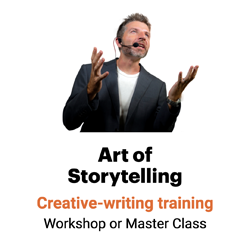To become a better writer, read better writing
When I entered first grade, I got a brand-new red text called We Can Write What We Can Read.

Back then, the title encouraged 6-year-olds to pattern letterforms, words and sentences after the prose we muddled through in our See Jack Run primers. Today, that phrase spurs me to consider what I read as inspiration for what I write.
And if I want my reading to influence my writing, I’d better be reading the best stuff out there.
So what’s on your reading list?
Ann’s reading list
For me, “the best stuff” includes:
- The feature story structure of The Wall Street Journal
- The techniques writers from Harpers, The Atlantic Monthly and The New Yorker steal from the fiction writers to draw readers through even the longest story
- Warren Buffett’s tricks for clarifying the most complex financial formulas through humor, anecdote and metaphor in his letters to shareholders
- The analogies the best science writers use to explain complicated concepts
- The fanciful wordplay in Dr. Seuss books
- The word pictures NPR’s “All Things Considered” and “Morning Edition’” reporters paint
- The transitions at the ends of chapters of mystery books, especially Dick Francis novels
What writing, publications and online communications do you most admire? Add those to your regular reading list — and pay attention to the craft behind the words.
Forage more widely.
You’ll also want to forage widely.
That is, make sure you’re looking at great pieces of communication — not just the ones you need to gather information and conduct transactions in your daily life.
That’s why I subscribe to New York, even though I live in Portland; Saveur, even though I use my oven for sweater storage; and Men’s Health, although I’m not a man — and, frankly, not that interested in being healthy, either.
Beware the “but it’s not like our publication/company/style/industry/specialty” response. If you’re only willing to pick up ideas from communications that are just like yours — say, the websites of Iowa insurance companies that specialize in agricultural coverage — your ideas will be as limited as your foraging.
As brilliant marketing expert Dan Kennedy says, looking only to your own kind for ideas is a form of creative incest. Like actual incest, he says, the products of creative incest just get dumber and dumber and dumber with each generation.
Take Faulkner’s advice.
In a rejection letter to a budding writer, William Faulkner offered this advice:
“I don’t think you have read enough. I don’t mean research, facts: who in the hell cares for facts. You have not read enough stories of people who have told their stories well. Read the following books, then rewrite ‘Black Orchid’ from beginning to end.
“The Brothers Karamazov. Dostoevkey. Buddenbrooks. Thomas Mann. Tess of the d’Urbervilles. Thomas Hardy. Any other Hardy you would like to read.
“This may offend you. If it does, you have no business trying to write at all. If it does not, you may get somewhere someday.”
Once you’ve developed your reading list, read like a writer, don’t just read like a reader.
_____
Source: “Yarn Burning,” Harper’s Magazine, September 2006. From a Sept. 17, 1935, letter by William Faulkner

Leave a Reply